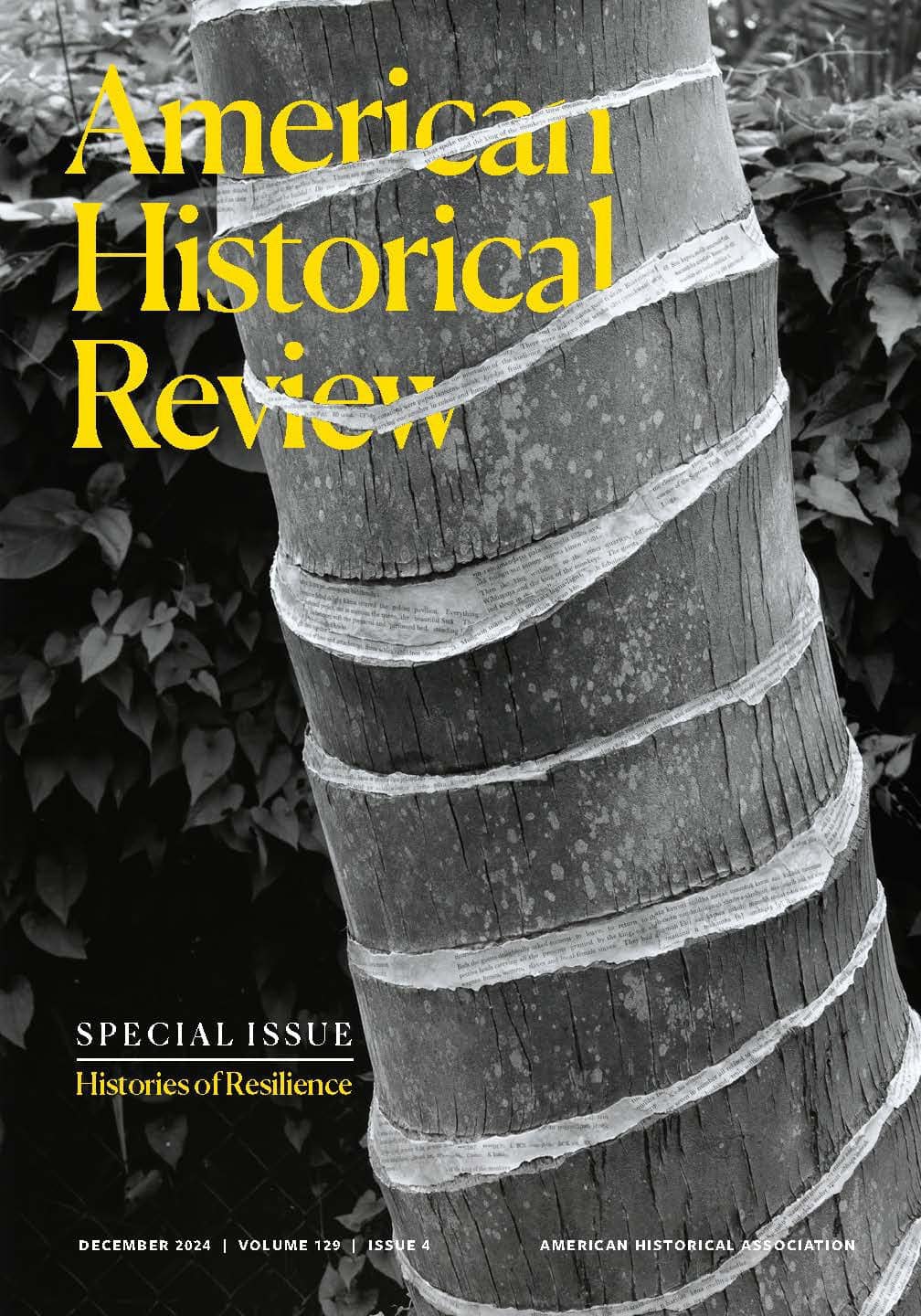The AHA is proud to recognize the recipients of its J. Franklin Jameson Fellowship in American History and its Fellowship in Aerospace History for 2019–20. These two annual fellowships are intended to assist scholars at early stages in their career; they support full-time research and writing. This year’s class of fellows engages various interdisciplinary perspectives to deliver particularly timely contributions to current conversations in American policy and culture.

David Andrew Johnson
David Andrew Johnson
The Jameson Fellowship, sponsored jointly by the AHA and the John W. Kluge Center at the Library of Congress, is awarded annually to support significant scholarly research in the library’s collections. A stipend funds up to three months of full-time residence at the Kluge Center. The winner of the 2019–20 fellowship is David Andrew Johnson, who earned his PhD in history from Rice University in 2018, with focuses on the Atlantic world, early North America, and environmental history.
Johnson aims to finish his monograph, Descent into the Lowcountry: Enslaved Native Americans and the Making of South Carolina, 1659–1750, an investigation into enslaved Native Americans in a plantation context and the integral role that indigenous peoples played in the development of colonial slave societies. Contrary to much of the work that focuses on the movement and trading of Native Americans as a form of primitive accumulation of capital to purchase slaves from Central and West Africa, Johnson examines the contributions of enslaved indigenous men, women, and children to South Carolina’s plantation societies and the development of African American culture.
Johnson notes that one of the largest obstacles to his research thus far has been the deficit of written narrative sources from colonial South Carolina in comparison to its northeastern counterparts. In order to fill in the gaps in the primary source material, Johnson has employed a notably interdisciplinary approach, turning to both Geographic Information Systems mapping and the archaeological record. Combing through probate papers, Johnson has linked over 15,000 enslaved peoples and indentured servants to owners at a particular point in time before cross-referencing these findings with land-ownership records. The final product? A mapped, visual representation tracing the movements and concentrations of enslaved peoples on South Carolina’s plantations throughout the 17th and early 18th century. Johnson hopes that homing in on the material culture of pottery production, which was gendered female in the majority of both eastern Native American and West and West-Central African societies, will corroborate his claims of cultural syncretism and indigenous contributions to early African American culture.
Johnson has demonstrated creativity in circumventing ethnographic gaps in evidence, and he is greatly excited by the opportunity to utilize the collections at the Library of Congress that contain rare anecdotal materials, including colonists’ personal papers, letters, and sermons from early South Carolina, greatly excites Johnson. His published work will shed light on the marginalization of both Native and African Americans and ways in which the consequences of settler colonialism that America faces today, and Native peoples face continuously, intersect in many ways with the legacy of historical slavery.

Stephen Buono
Stephen Buono
The Fellowship in Aerospace History is supported by the National Aeronautics and Space Administration (NASA) and awards a stipend of $21,500 to fund advanced research in aerospace history. The review committee has selected Stephen Buono, a PhD student in the history of science and technology at Indiana University, Bloomington, and a 2016 Arthur M. Schlesinger Jr. Research Fellow at the John F. Kennedy Library.
With the AHA’s fellowship support, Buono plans to complete his doctoral dissertation, “The Province of All Mankind: Outer Space and the Promise of Peace, 1948–1970,” an analysis of the early Space Age through the interrelated lenses of diplomatic, political, cultural, and intellectual history. Pivoting away from the commonly chronicled hostility, competition, and paranoia exhibited by the United States and the Soviet Union that has largely defined Cold War and Space Race historiography, Buono posits that outer space actually provided an avenue for the superpowers to explore peaceful initiatives and alternatives to nuclear war.
Contemporaneously, yet in stark contrast, the same nations that were waging arms races and colonial wars were enthusiastically collaborating on progressive, multilateral initiatives to preserve the autonomy of space. Proponents of “sanctuary diplomacy,” as well as many policy makers, space enthusiasts, writers, and commentators, were dedicated to protecting the cosmos from the technocratic rivalry and environmental exploitation that has plagued life on Earth. Buono’s manuscript probes deeper into the thinking of those who held that space exploration could foster a mindset transcending nationalism and uniting humanity against the unknowns of the universe. He says his work promises to demonstrate a trans-Atlantic consensus to handle outer space “more diplomatically, more morally, and more ethically than other areas of policy.” A large corpus of his evidence focuses on ideological currents in the 20th century prior to human exploration of space and on products of popular culture, such as comic books, magazines, and science fiction novels. During his residence in Washington, DC, Buono plans to also scour sources at the National Archives, the National Air and Space Museum, and the Library of Congress.
Buono has paid thoughtful attention to simplifying the technical lexicon throughout his manuscript. He is optimistic that with the absence of jargon, his work will garner interest not just among space and diplomatic historians but from the wider public. Amid contemporary speculation surrounding commercial flight into the cosmos and the militarization of outer space, Buono delivers vital context for carefully calculated, multilateral rules already written about the realm of space.
Congratulations to Johnson and Buono! Applications for the AHA’s 2020–21 fellowships will open in October 2019.
Devon Reich is operations and marketing assistant at the AHA. Editor’s note: A version of this article was published online on June 6, 2019, under the title “Announcing the 2019–20 Jameson and NASA Fellows.”
This work is licensed under a Creative Commons Attribution-NonCommercial-NoDerivatives 4.0 International License. Attribution must provide author name, article title, Perspectives on History, date of publication, and a link to this page. This license applies only to the article, not to text or images used here by permission.


